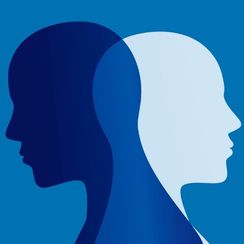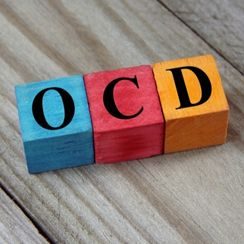

Low mood and mood swings are some of the most common and uncomfortable emotions that we
can experience at some point in our lives. While we all feel sad, moody or low from time to time,
some people experience these feelings intensely, for long periods of time (weeks, months or even
years) and sometimes without any apparent reason.
Through treatment, we can help you recover motivation, perspective, and joy that you once had in
your life.


We all experience anxiety or fight or flight reaction in our day-to-day life. Unfortunately, globally, a
large proportion of people are now struggling with heightened anxiety which is clearly worse than
the normal situational “nerves”. Depending upon the individuals, there may or may not be obvious
triggers for such experiences. For some people, coping with intrusive thoughts, imagery, visions and
compulsive rituals can be the hardest thing to achieve in day-to-day life.
Fortunately, with advances in psychiatric medicine, generalised anxiety disorder can now be successfully
treated in most cases. Our clinicians are highly skilled in this area.


Psychosis is a mental disorder where a person loses the capacity to tell what’s real from what isn’t.
There are many reasons for onset of psychosis, most common being drug induced or schizophrenia.
Schizophrenia is a psychotic disorder, a type of mental illness characterised by distortions in
thinking, perception, emotions, language, sense of self and behaviour.


Post-traumatic stress disorder (PTSD) is a complex mental health condition. It can develop in people
who have experienced or witnessed severe trauma such as a serious accident, sexual or physical
assault, war or disaster. Complex trauma (also being called cPTSD by people), that can occur
following prolonged and/or recurrent exposure to traumatic events (such as childhood abuse or
domestic violence), can be extremely stressful and has long lasting adverse impact on people’s lives.


A personality disorder refers to a longstanding (often rigid and unhealthy) pattern of thinking,
behaviour and emotion that has significant impact on bio-psycho-social functioning. People with
untreated personality disorders struggle to ensure harmony in interpersonal relationships.
One of the most common personality disorder that we encounter in practice is Borderline
Personality Disorder which is a mental health condition that impacts on people’s relationships with
others in personal, social and work life. In this condition people struggle to have healthy thoughts
about themselves, to control their emotions and often engage in impulsive behaviours, which leads
to distress.
People with Borderline Personality Disorder can achieve better outcomes in their life
with right diagnosis, safe and responsive care and structured psychological therapies that our
professionals can help you with.


Grief is a natural and normal reaction to loss. It can be worse when the loss is traumatic, sudden or unexpected.
We work with the simple principle of understating the cause to manage the symptoms. We have a strong focus on motivational based principles to help people get onto their path of recovery.


Eating disorders are serious, potentially life-threatening mental illnesses that can have long term
physiological and psychological effects. A person may develop an eating disorder for a range of
reasons, this will differ from person to person; known causes include genetic predisposition and a
combination of environmental, social and cultural factors.


We all experience pain at various times in our lives that can lead to physical and emotional distress.
As much as, we would all like to avoid it, pain does protect us because we stop doing things that lead
to pain.
Pain tends to be self-limiting and settles with time. In some cases, pain becomes chronic and does
not settle despite treatment even after six months. Such pain become chronic or persistent in
nature. It is associated with depression and anxiety leading to reduced quality of life. There are
gradual changes in the form of increased irritability, poor sleep, loss of interest and often an
avoidant lifestyle. There are other risks like dependence on prescribed medication or self-
medications with alcohol and drugs.


A referral letter from your GP is required to see Dr. Sharma.

Obtain a referral from your GP, the referral can be made out to specific psychiatrist or to All Psychiatry.

Ask your GP to fax the referral to us – 03 8080 6484 or email to admin@allpsychiatry.com.au

Once our friendly admin staff has received your referral, it will be quickly screened and admin staff will call you back to book an appointment.